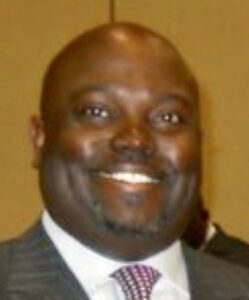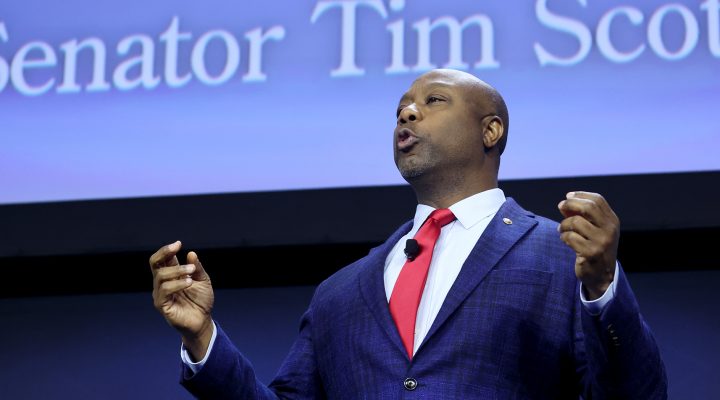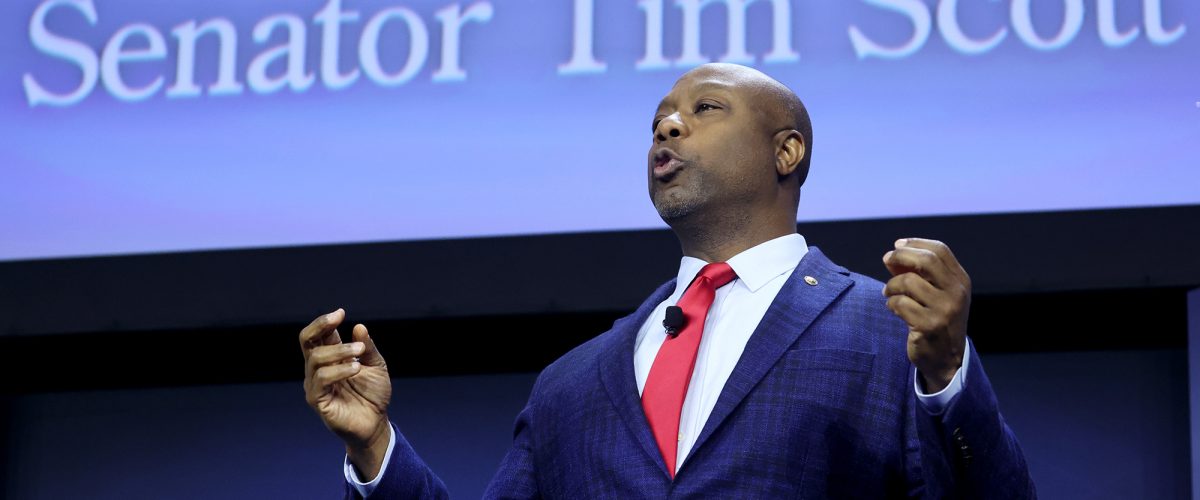A couple of years ago, in response to President Biden’s 2021 State of the Union speech, South Carolina Sen. Tim Scott gave an eloquent speech that earned him the admiration and support of many conservatives while catapulting him to serious presidential consideration. Unfortunately, the Senate’s lone Black Republican highlighted some real problem areas for America.
Scott boldly declared that America is not a racist nation.
This is the same Tim Scott who showed great courage just a couple of years earlier when he eloquently spoke about being repeatedly racially profiled by law enforcement even as a U.S. senator.

Sid Smith III
Racism in America primarily is an issue of white supremacy. Although the sin of prejudging and mistreating others because of perceived differences is surely manifested in all people groups, our American institutions somehow were formed and operated to the advantage of whites and the disadvantage of people of color.
That’s what slavery was. That’s what Jim Crow was. That’s what school segregation was. That’s what voter suppression was (and is). That’s what redlining and gentrification was (and is). That’s what mass incarceration was (and is).
The people who try to convince you the primary manifestation of racism is now against white people cannot point you to such systemic realities imposed upon whites. Until we grapple with the legacies of the institutional expressions of white supremacy, we never will eliminate racism.
Here’s an example. More than half a century ago, Martin Luther King Jr. indicted the American church (presumably when we are at our best) as complicit in racism when he noted that 11:00 on Sunday morning was the most segregated hour of the week. Only the ignorant would attribute that to mutual self-segregation instead of the white supremacy of our religious institutions.
My own denominational heritage includes the largest and most powerful Protestant denomination, the Southern Baptist Convention, which built its foundation and formation in defense of the enslavement of Black people.
Six decades after King’s observation, 11:00 on Sunday morning remains the most segregated hour of the week. Although we read and believe the same Bible, somehow white churches look and sound very different from Black churches, and our votes are cast almost diametrically opposed to each other as we pursue “godly values.”
The denial is so pervasive that denominational leaders fail to see the obvious inherent problem of the establishment of a premium position statement on race by a room filled with and limited to white men.
Sen. Scott would have us believe racism somehow has disappeared from America, except for those on “the left” seeking to victimize whites. But his words resonate with a political constituency almost entirely devoid of ethnic voters. Their leader, Donald Trump, garnered a smaller percentage of Black support in both of his presidential campaigns than KKK Grand Wizard David Duke earned in his Louisiana statewide elections.
“Donald Trump, garnered a smaller percentage of Black support in both of his presidential campaigns than KKK Grand Wizard David Duke earned in his Louisiana statewide elections.”
Why is there such a disconnect between the right and ethnic voters? Should that disconnect cause concern? If so, for whom?
Conservatives would have far more credibility with Black voters if they had not been opposed to fighting those manifestations of historical white supremacy when they were policy. Instead, they employed essentially the same arguments they use today to maintain and reinforce a status quo that benefits a mainstream culture that never was intended to include some people.
The ideological architect of today’s conservative movement, William F. Buckley Jr., saw no reason to counter societal norms built upon Jim Crow segregation before and during the Civil Rights movement. In 1957 he wrote, “The central question that emerges … is whether the white community in the South is entitled to take such measures as are necessary to prevail, politically and culturally, in areas in which it does not predominate numerically. The sobering answer is yes — the white community is so entitled because, for the time being, it is the advanced race.”
Republican Sen. Barry Goldwater ran for president in 1964 on a platform opposing the Civil Rights movement while children were attending schools still segregated in state-sponsored defiance of the Supreme Court, thus solidifying an ideological direction that has defined the Southern Strategy ever since.
In 1963, the Gallup Poll reported that more than six in 10 whites felt Blacks were treated equally in their communities. Those whites evidently were not able or willing to recognize the clear racial injustice in their day-to-day lives and felt like they all got along with one another — during the same year the four little girls were killed when a racist terrorist bombed the 16th Street Baptist Church during Sunday school in Birmingham; the same year that Alabama Gov. George Wallace stood defiantly in the door of the University of Alabama declaring “segregation today, segregation tomorrow, segregation forever”; the same year Freedom Riders were literally getting their heads beaten in for sitting at lunch counters requesting equal service; and two years before the “Bloody Sunday” massacre on Selma’s Edmund Pettus Bridge in which the police attacked the nonviolent protesters of racial injustice with bullets, Billy clubs, dogs and fire hoses.
The conservatives of that day thought King, with his nonviolent protests toward his dream of love and the “beloved community,” was pushing too far too fast and thus hurting the cause of racial reconciliation.
Even in the 1870s, when we were just barely out of legalized slavery, the conservatives of that day were so unmoved by the urgency of protecting newly secured civil rights that they were willing to get rid of the protections of “big government” and “the deep state” in order to promote the power of a controversial one-term president elected without a popular majority.
“The Black community will be far better served when there is a viable and potent presence in both major parties.”
Modern Black voters clearly hear the harmonic similarities between today’s conservatives and their ideological descendants who could not recognize the need to fight racism by opposing systemic white supremacy. Tim Scott, of all people, should see the need to change his tune.
I fully support the reemergence of strong and authentic Black voices in the Republican Party. The Black community will be far better served when there is a viable and potent presence in both major parties, thus forcing both sides to work to earn our support. But we do ourselves harm when we allow ourselves to be co-opted into a mainstream agenda that never was intended to represent our interests.
After all, as Tim Scott’s fellow South Carolina GOP colleague Sen. Lindsay Graham lamented, “We’re not generating enough angry white guys to stay in business for the long term.”
Is that really the chorus that we want our brother Tim to join?
Sid Smith III is a music ministry consultant and serves at Third Baptist Church of San Francisco. His father, Sid Smith Jr., was a pioneer Southern Baptist Convention leader credited with starting more than 400 predominantly Black SBC churches.


